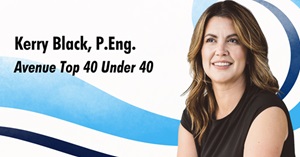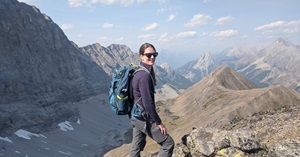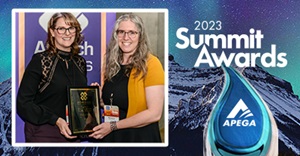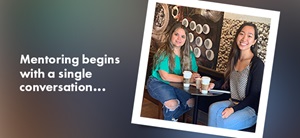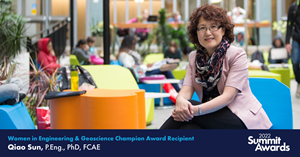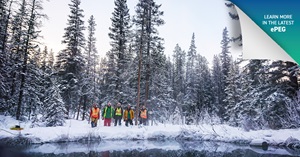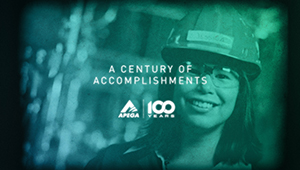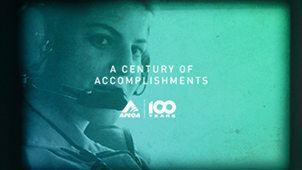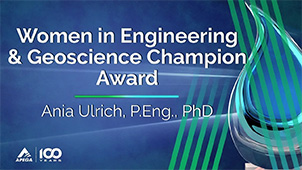Women in the Professions
Let's celebrate those who practise, from the trailblazers to those leading the way today.
Highlighting Women Advancing the Professions
APEGA is committed to increasing the representation, engagement, and retention of women in engineering and geoscience to ensure the inclusivity and sustainability of the professions.
Jump to a Section
Destination Professional Engineer
Professional engineers Samantha Irwin and Dena Davies have journeyed from eager university graduates to seasoned professionals—both on unique paths of wins and challenges. They share the experience of navigating predominantly male industries and are now clearing a path for future professionals.
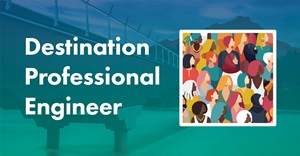
Shift the Workplace Culture
Systemic barriers are forcing women out of engineering and geoscience in Alberta. Let’s forge a path towards a barrier-free, inclusive future.
Read about More Women Engineers and Geoscientists in Alberta
Swimming Against a Colonial Current
Professional engineer Kerry Black is an innovator making Calgary—and the world we all share—a better place to live. For her efforts, Black has been awarded an Avenue Magazine Top 40 Under 40 award. She swims against a colonial current, working to change systems, policies, infrastructures, and beliefs. Her work is helping to ensure clean water and equity for Indigenous communities.
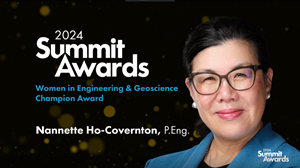
Nannette Ho-Covernton: Women in Engineering & Geoscience Champion
Nannette Ho-Covernton, P.Eng., the sustainability lead for Spartan Controls, is driving a global clean-energy future through scientific, technical, and creative ecosystem leadership. Ho-Covernton’s work earned her APEGA’s 2024 Women in Engineering & Geoscience Champion Award.
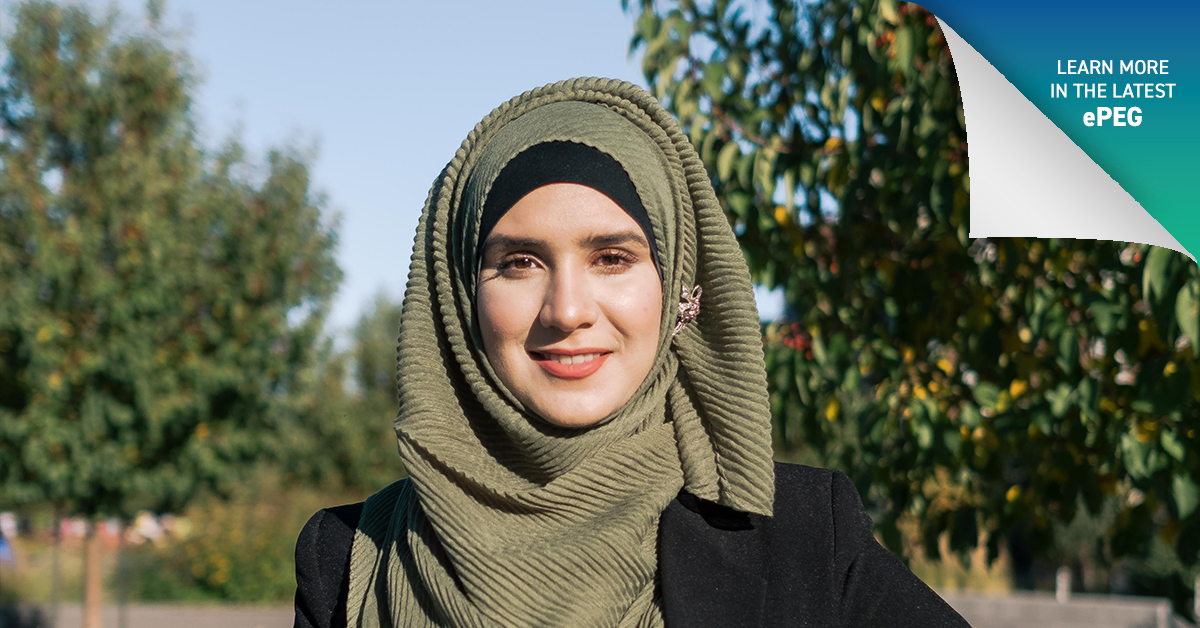
The Ingredients of an Engineer
A past recipient of APEGA’s Ivan Finlay Leadership Award, Nima Macci, E.I.T., is committed to breaking down cultural barriers, fostering inclusive work environments, and building a more equitable world.
A Blocked Pipeline to Success: Changing the Woman Geoscientist Experience
Mandy Williams, P.Geol., stayed up much of the night directing the drilling progress of a horizontal well. She's used to the ambiguity—it trails through regions of the geoscience landscape in more ways than oil-pool prospects. It is similarly plaited into the experience of being a woman in a male-dominated profession. The data is bringing this to light, in part by APEGA’s Women in the Workplace: A Shift in Industry Work Culture report.
Alberta Women’s Science Network (AWSN) Equitable Scholarship Program
AWSN received a 2023 Summit Award in recognition of its exceptional achievement as a champion of women in engineering and geoscience. In 2022, AWSN updated its scholarship program to assess the whole person and their experiences with the practicalities of the application and adjudication processes. This change better considered how the social and political identities of an individual intersect to create types of systemic oppression, discrimination, and lived experiences.
Engineering Equity: A Woman's Perspective in a Male-Dominated Profession
As a woman working in a male-dominated profession, Megan Bowen, P.Eng., says most of her experiences are positive—it’s the negative ones that can mar the rest. “At my current company, I feel very supported and respected, which is really huge.” She says her current role is ideal, but in the past at other organizations, she has faced challenges and biases because she is a woman.
Mentorship in Any Language
When she first moved to Canada, mentoring was a foreign concept to Mairim Neves, P.Eng. “I remember a friend told me I needed a mentor. I didn’t know what the term meant.” Fast forward 12 years—Neves has become the mentor she once needed, volunteering in APEGA's Mentoring Program.
A Symbiotic Asset for So Many
APEGA’s 2022 Women in Engineering and Geoscience Champion Summit Award recipient, Dr. Qiao Sun, P.Eng., is simultaneously an educational leader, a government influencer, and an entire grassroots organization unto herself. She imparts the courage to fail—and succeed—on her mentees. She says, "Engineering training gives you that attitude—if you don’t like it, change it."
Lighting the World into the Next 100 Years
Alison Thompson, P.Eng., is about progress—perpetual movement forward towards a cleaner country—a drive that earned her the APEGA Centennial Leadership Summit Award in 2020. For years she worked in the oil and gas industry before having an epiphany about geothermal energy: why was the Canadian sector not leveraging this system that had been in use for more than 100 years in other countries?
Alberta's Women Engineers and Geoscientists Through History
Let's celebrate those who came first, forging the way and creating possibilities for women in the professions.
1922
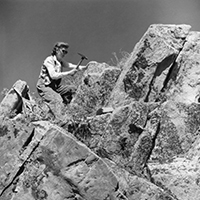 Breaking New Ground: Alberta’s First Women Geoscientists
Breaking New Ground: Alberta’s First Women Geoscientists
Alberta’s women geoscientists were true trailblazers—sometimes literally. Whether climbing mountains to collect rock samples or examining microfossils in a lab, their work led to new discoveries and gave future generations of Earth scientists a better understanding of the world beneath our feet.
1935
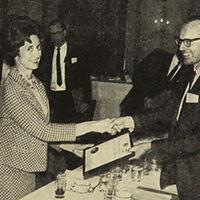
Champions of Change: Alberta’s First Women Engineers
Alberta’s first women engineers quietly transformed the face of engineering in Alberta. Though they were few—only a handful by the late 1960s—they overcame resistance and steadfastly cleared a path for those who followed. Challenging the status quo, they were pioneers in their fields. They were also patriots. Entrepreneurs. Advocates for women in engineering. Leaders and role models.
1954
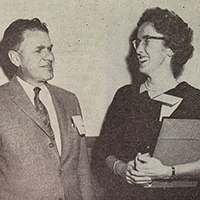
Who was APEGA’s First Woman Member?
Was professional geologist Helen Leskiw the first woman to register with APEGA? We did some digging and the answer is yes—probably. She graduated from the University of Alberta in 1950 with a bachelor’s degree in science, followed by one year of graduate studies in the geology department, and registered with APEGA in 1954.
1961
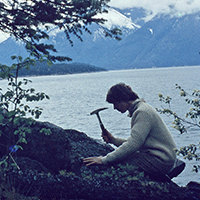
The Unstoppable Alice Payne, P.Geo.
The dean of women was threatening to expel her. It was 1961 and Alice Payne, a third-year geology undergrad at the University of Alberta, had signed up for the annual class field trip to the mountains. The one-week outing was a vital part of her structural geology course—a chance to learn hands-on skills she’d need for employment. The problem? She was the only woman on the list. Going on the field trip simply wouldn’t be proper.
Women in the Professions Share Their Perspectives
Select a video to watch below

